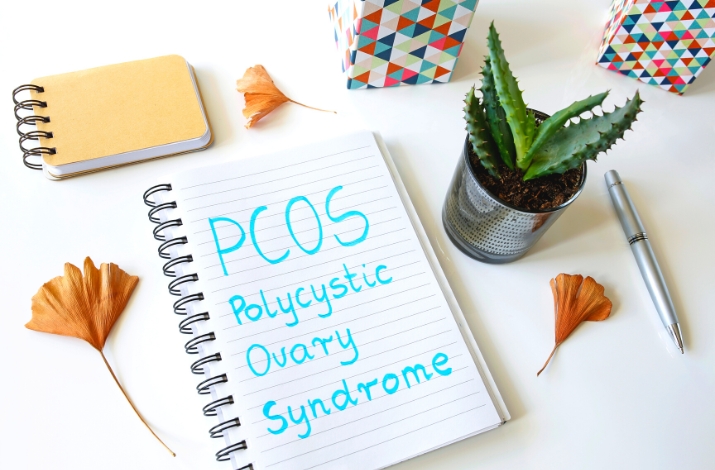Can inositol help improve PCOS?

A scientific manuscript was recently published that sheds new light on an old and oft-used supplement for polycystic ovary syndrome (PCOS)–inositol. But what is inositol and how does it work? To understand this, we first need to understand the metabolic origins of PCOS.
I’ll never forget the first time I heard a fertility specialist refer to PCOS as “metabolic infertility”. This is a much more helpful term because it reveals the nature of the nature of the problem (i.e., metabolic health), rather than focusing on a symptom (i.e., ovary cysts). With PCOS, a primary problem is an abundance of insulin. Insulin has countless effects on every cell throughout the body, and one of the more unexpected is its effects on sex hormone production. Within the ovaries (and to a lesser degree in testes), estrogens are created through a process of converting testosterone. Changing testosterone into estrogens is accomplished by an enzyme called aromatase.
Aromatase is very active during the ovulatory cycle–in fact, it’s essential. During the cycle, several potential eggs (“follicles”) are developing in the ovaries. A large burst of estrogens are necessary for ovulation, wherein one of the follicles becomes dominant and actually releases the egg (i.e., ovulate). Once ovulation has occurred, the other follicles are broken down and the ovaries are “reset”, in a way. But none of this could have happened without the large surge of estrogens. And the estrogen surge can’t occur without aromatase. This is where insulin comes in.
When insulin is elevated, it actually inhibits aromatase action [1]. This means that ovaries are less able to convert testosterone into estrogens. And with less estrogens, comes less ovulation. Now the follicles in the ovaries all stick around because there isn’t the signal (i.e., estrogen surge) to stimulate one of them to ovulate. These lingering follicles become the infamous cysts in PCOS.
With this background into the metabolic origins of PCOS, let’s explore where inositol comes in. Inositol is a commonly used and readily available supplement. Inositol actually has several actions on improving metabolic function and insulin action [2]. One effect is its ability to block glucose absorption in the intestines. By slowing or stopping glucose absorption, inositol can soften the metabolic blow of eating a starchy/sugary meal. Less glucose coming into the blood naturally leads to less of an insulin spike, which helps keep aromatase working optimally. Additionally, inositol improves the muscle’s ability to pull in glucose. This is very important because our muscles are the main tissue that consumes glucose. If we can help muscles pull in glucose better, then the body has a much easier time keeping blood glucose in check, which naturally leads to lower insulin levels.
All of this brings us to the study mentioned at the beginning of the article. Scientists conducted a meta-analysis by comparing all available studies that have ever looked at the effect of inositol in improving PCOS [3]. The results were very positive. They found that inositol was as effective as the drug metformin, which is the standard drug for PCOS (it’s no surprise that metformin acts by improving insulin resistance…).
Take-away Thoughts
Studies have explored a range of doses, usually around 2,000 – 4,000 mg a day. These levels are much higher than most supplements that are available over-the-counter. If you’ve struggled with PCOS, you may want to discuss using inositol, and the proper dosage, with your healthcare provider.
References
- https://www.sciencedirect.com/science/article/pii/S0015028211026689
- https://openheart.bmj.com/content/9/1/e001989
- https://rbej.biomedcentral.com/articles/10.1186/s12958-023-01055-z
This article is for informational and educational purposes only. It is not, nor is it intended to be substitute for professional medical advice, diagnosis, or treatment and should never be relied upon for specific medical advice.



















